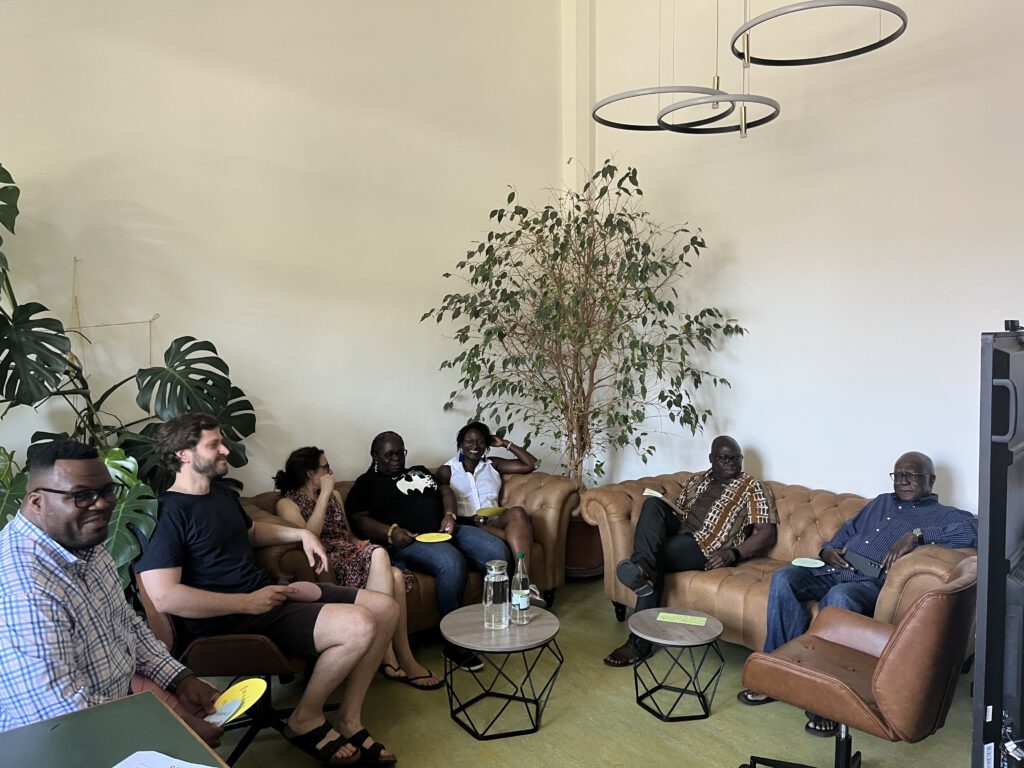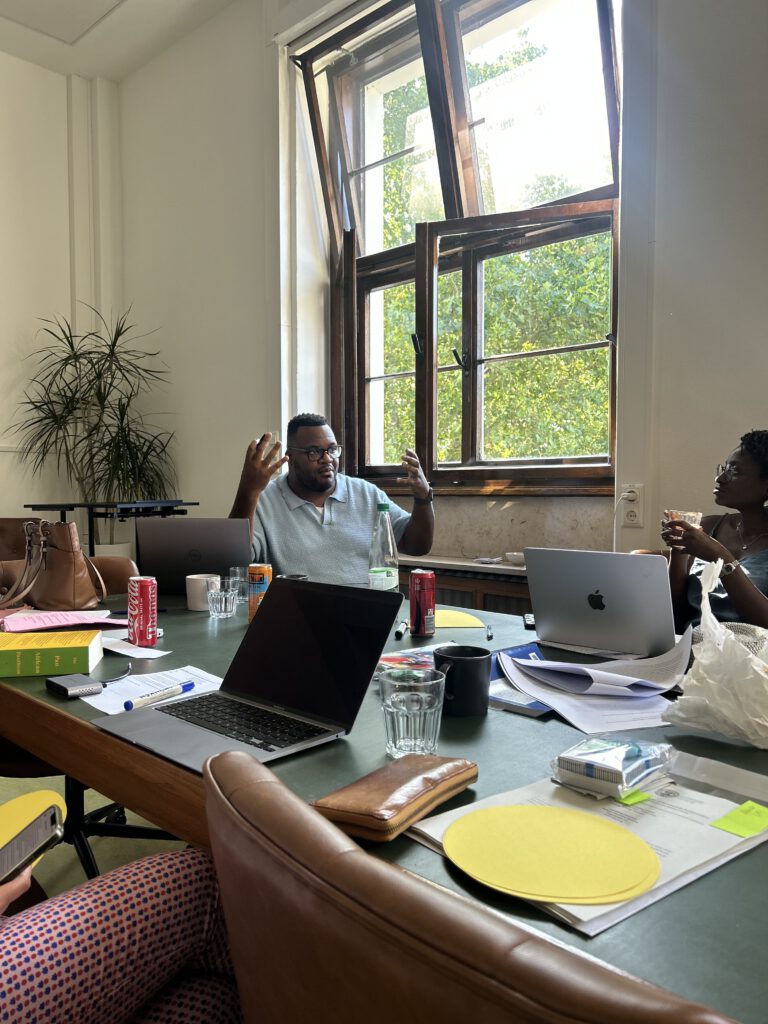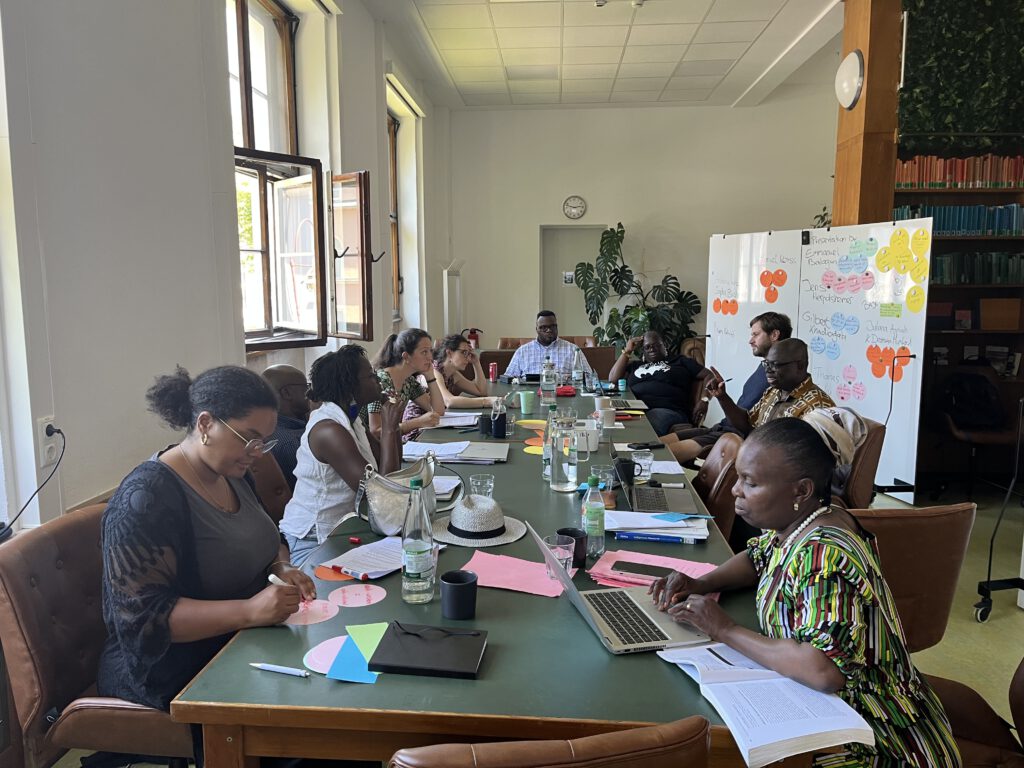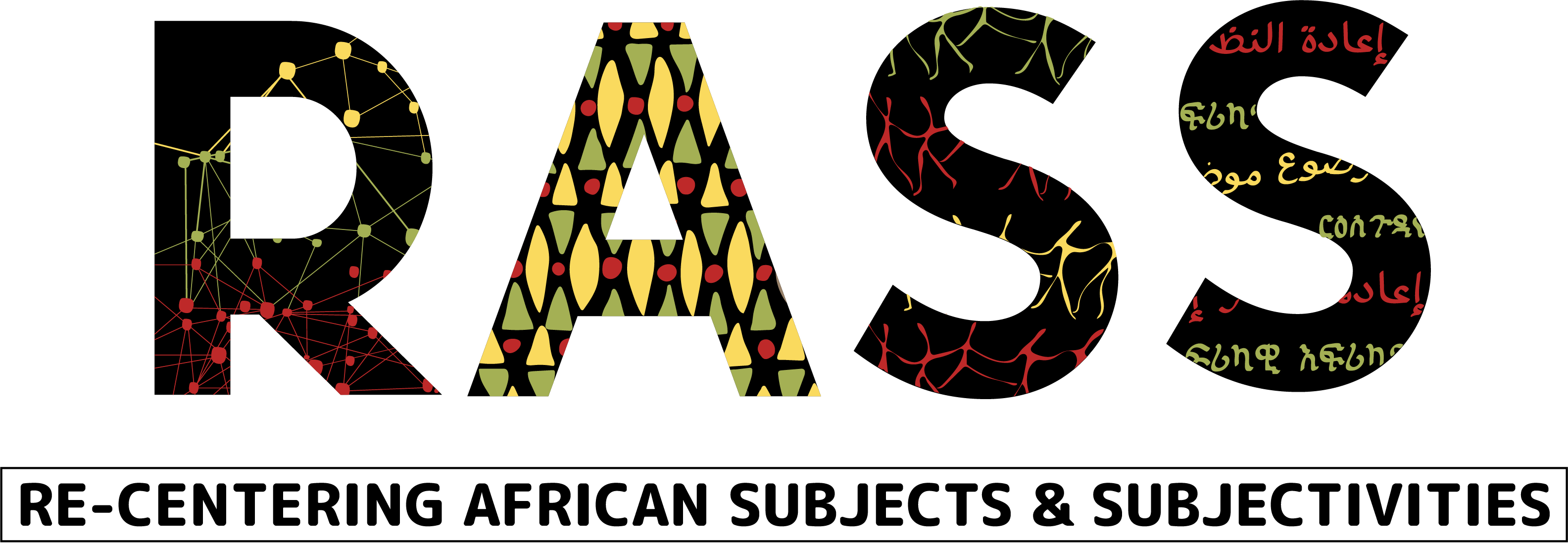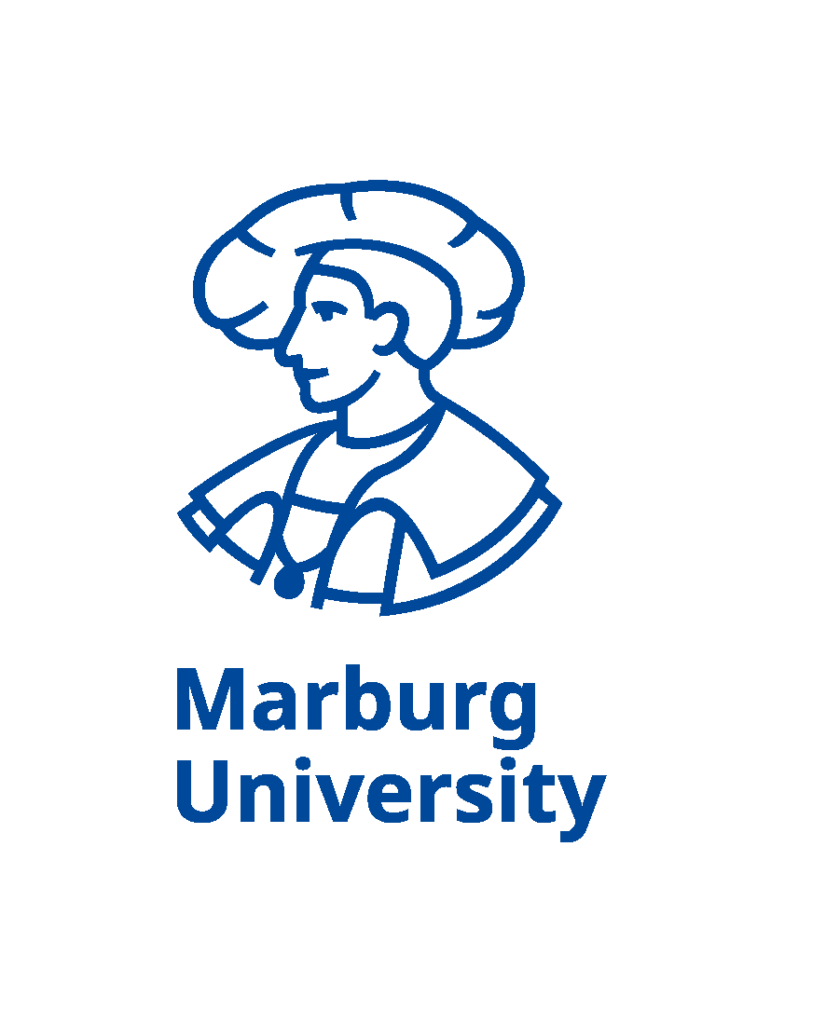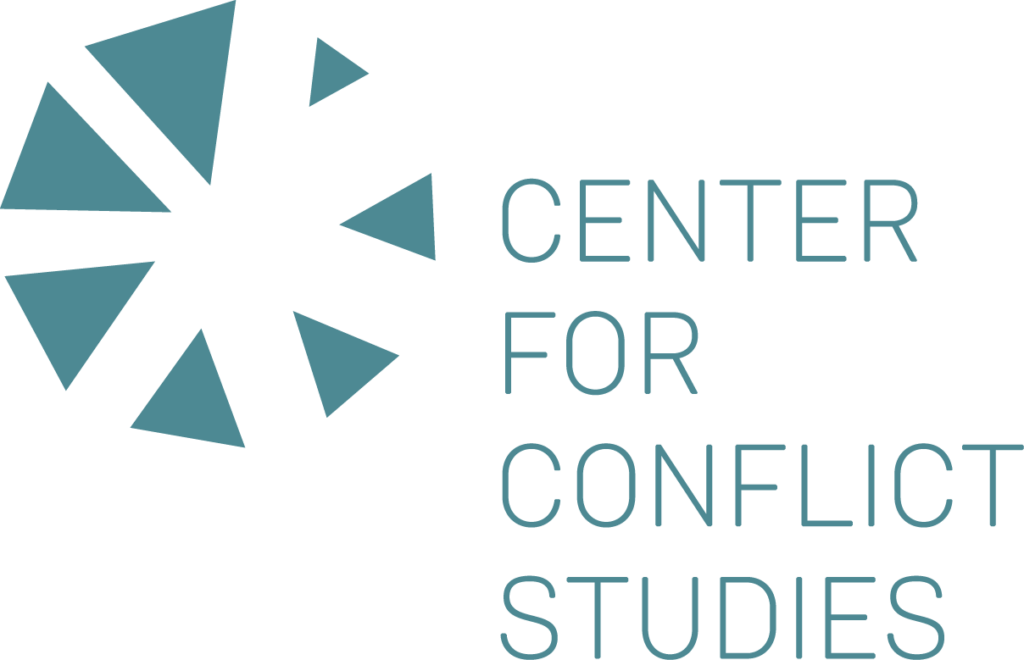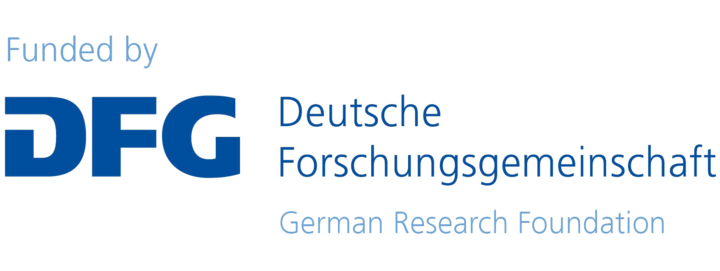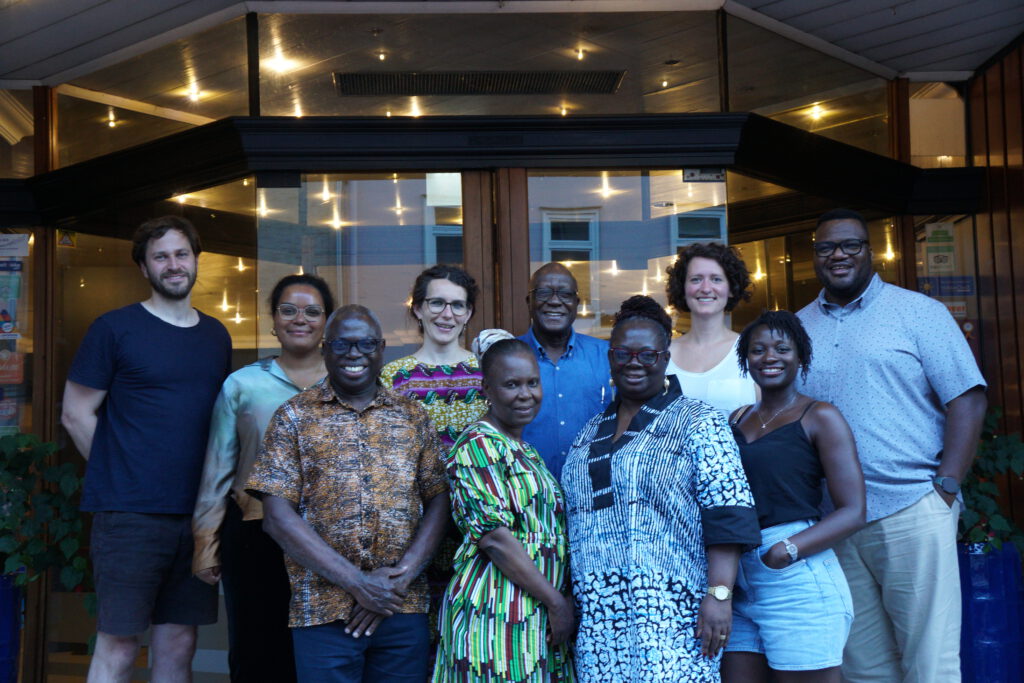
Marburg
Workshop 2025
From June 30th to July 3rd, 2025, the RASS network convened for its second workshop under the theme (Re)conceptualizing / (Re)thinking methodological approaches to study African regionalism. Hosted at Marburg University in Germany, the event built on the deliberations of last years inaugural workshop in Accra, Ghana, and offered a space for critical reflection, scholarly exchange, and collaborative development of alternative research practices. The workshop was organized by Miriam Mukalazi, Soary Stéphan-Robert, and Mariel Reiss.
The workshop opened with a collective reflection on the Accra workshop. This session set the tone by critically assessing the conceptual and methodological foundations developed thus far and identifying key gaps to be addressed. What emerged was a shared commitment to deepen engagement and further center epistemological approaches focusing on African subjects and subjectivities in the study of African regionalism. In the afternoon, a thought provoking conceptual intervention by Professor Bagele Chilisa followed. Prof. Chilisa is a renowned postcolonial scholar, author, educator, and an important African thought leader. She is a full professorat the University of Botswana. She drew from her long-term research on Indigenous and decolonial research methodologies and applied them to regionalism and international relations. Her contribution invited participants to think through the epistemic foundations of their work and to engage more deeply with relational, community-based knowledge practices. The day concluded with a first round of presentations, covering a diverse range of topics from reforms in African regionalism, presented by Gilbert Khadiagala, to sense-making practices of African regional organizatins in global politics by Jens Herpolsheimer, , and concluded with a call for analytical eclecticism by Emmanuel Balogun.
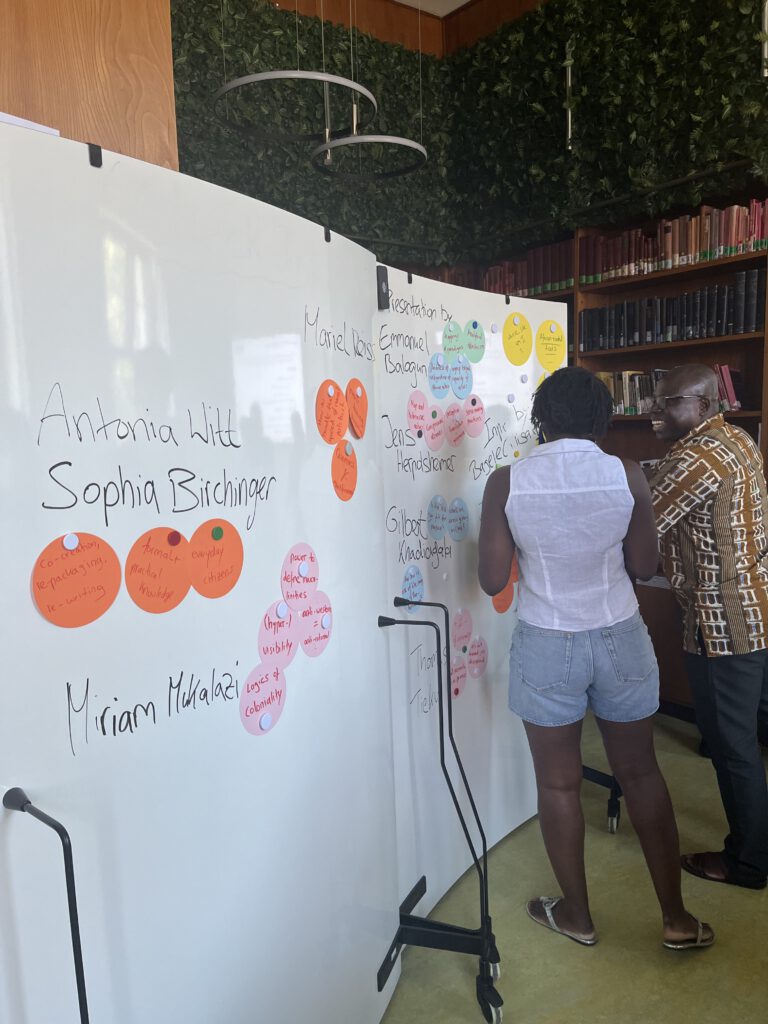
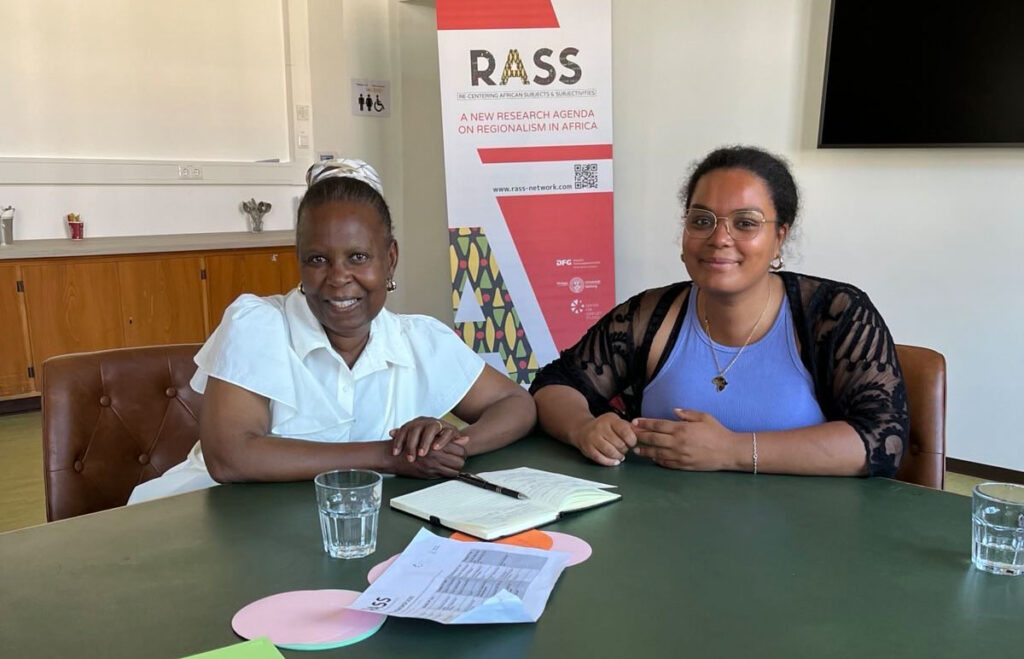
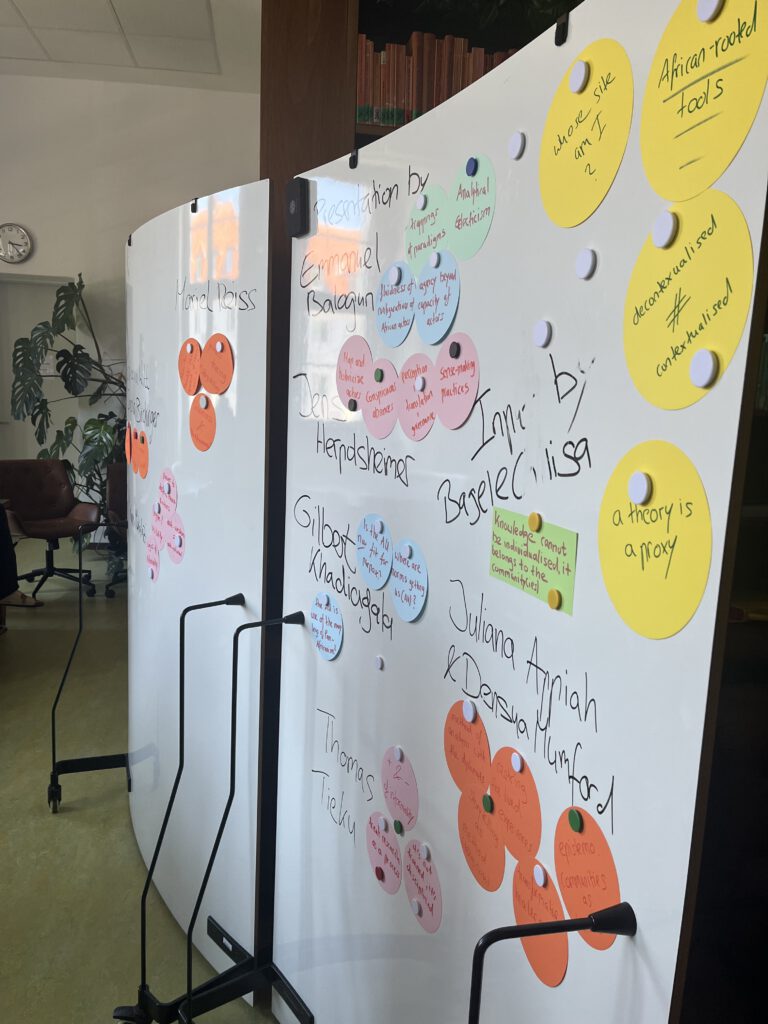
The second day featured two presentation sessions that showcased the network’s methodological diversity. Thomas Tieku presented the normalistic conversational methodologies and Juliana Appiah and Densua Mumford their collaboration on the topic of making sense of Ghanaian diplomatic beliefs and practices with a focus on the research design. Last but not least there were presentations by Miriam Mukalazi on security partnerships beyond former colonial powers in cameroon and senegal“ and Mariel Reiss on anti-LGBTIQ+ narratives, norms, and legislations and their impact on human rights in the African multi-level governance system, as well ason citizen perspectives on the AU and ECOWAS by Antonia Witt and Sophia Birchinger (from PRIF, who joined the workshop as a guest)
In the afternoon, a dedicated session on methodological reflections offered space to interrogate dominant paradigms and experiment with alternative approaches. The day ended with a public event in collaboration with the Center for Gender Studies and Feminist Futures: the annual Gender Lecture. Held this year by Prof. Chilisa on „Questioning Gender Norms through African-Rooted Feminisms“. Drawing on years of experience in survey development and research with indigenous communities on African ways of perceiving reality, knowledge, and values, Chilisa argued that research methodologies rooted in African philosophies, histories, culture, and experiences interrogate a reality that is interconnected, interdependent, and spiritual. After the lecture, the audience was invited to ask questions and engage with Prof. Chilisa – a vivid discussion unfolded in a room full of students and academic staff from the University of Marburg, surrounding Universities and research institutes. The lecture can be listened to here as a podcast.
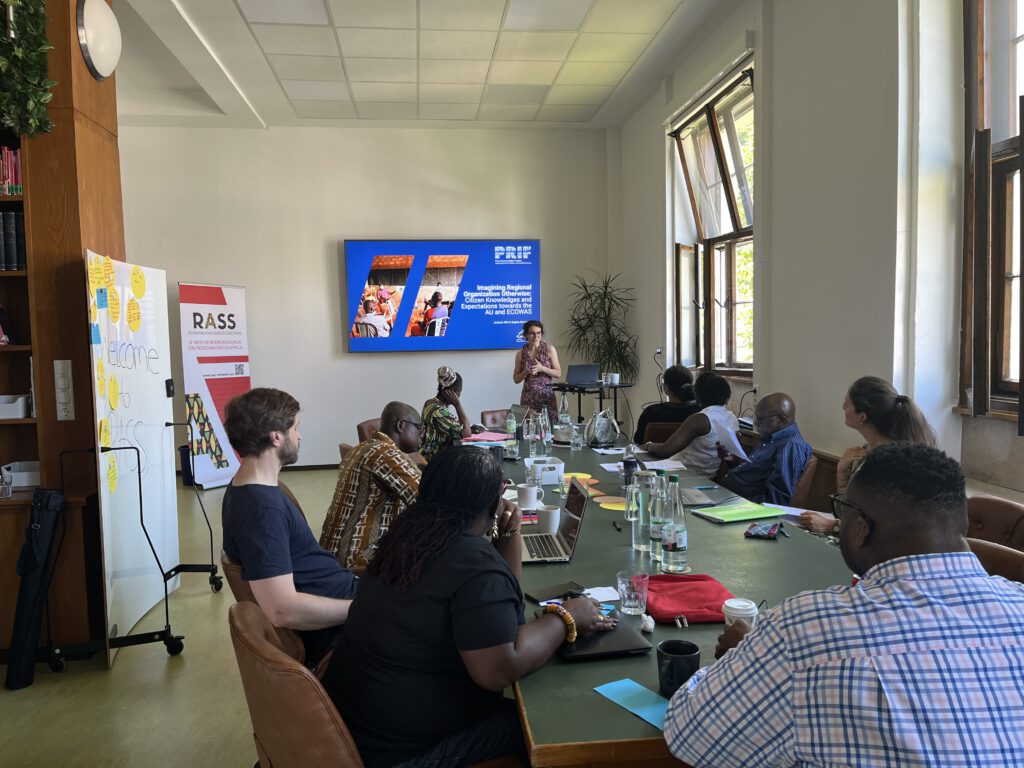
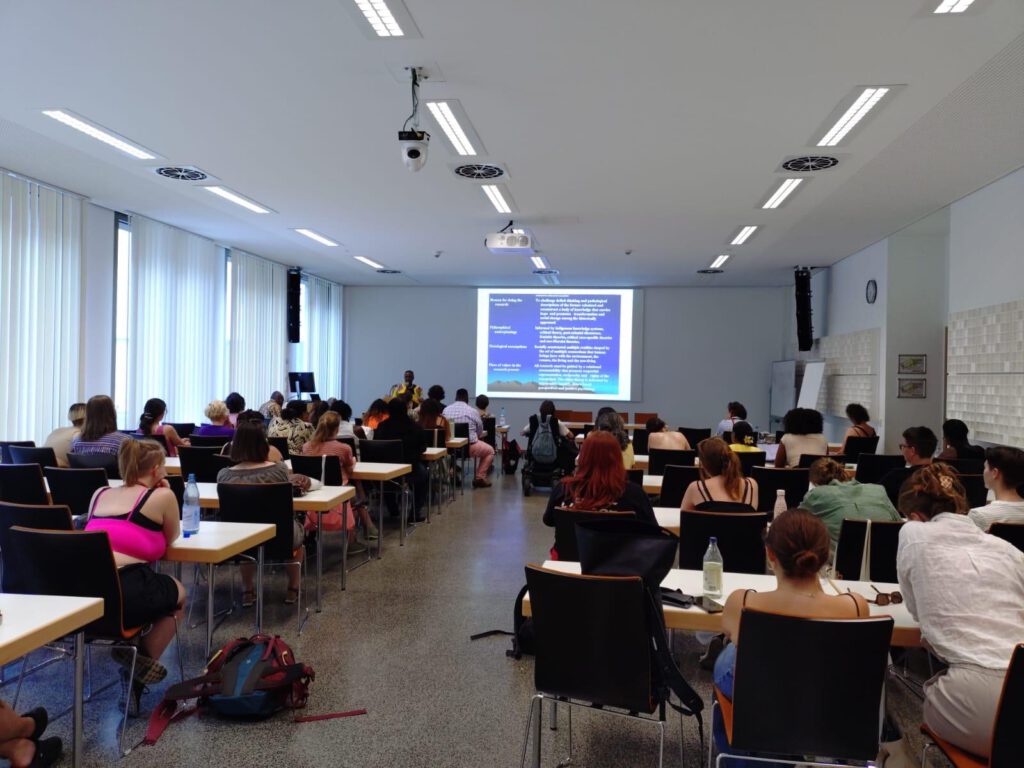
The third day offered time and space for writing and deeper engagement. A structured writing session allowed the network members to advance ongoing projects and support each other in aligning their research with the network’s shared methodological commitments. A second session on methodological reflections extended the previous discussions by exploring the influence of epistemological positioning on research practices. The RASS network members also discussed the planned output of their work and their contributions to a special issue and an edited volume. tAll s. The workshop concluded with a plenary reflection and closing ceremony, setting the stage for the network’s next steps.
The Marburg workshop marked a crucial moment in the RASS network’s journey. Through sustained dialogue, mutual support, and critical reflexivity, the workshop reaffirmed the importance of methodological innovation in advancing a more inclusive and decolonial study of African regionalism. As the network continues to grow together, these gatherings remain vital spaces for shaping collective futures of knowledge production.
